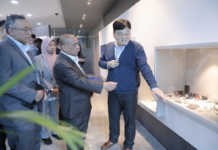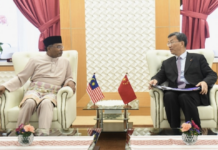KUALA LUMPUR, June 14 — The introduction of a flexible ceiling price for food items will help to curb inflation and halt a price hike while allowing prices to be moderated without keeping them so low that it forces suppliers to be out-of-pocket, an analyst said.
Malaysia University of Science and Technology (MUST) Economics Professor Geoffrey Williams said it is a good move by the government to accommodate concerns about long-term price controls.
“Prices are still managed and so it will help to curb inflation and there should be no surge in food prices,” he told Bernama.
Yesterday Prime Minister Datuk Seri Ismail Sabri Yaakob said the government will introduce a flexible ceiling price that changes according to price input factors in a bid to ensure food security in the country.
Williams, who is also the MUST provost for research and innovation, said the moving ceiling price for food items is a relaxation of the price control mechanisms and signals a step closer to the normalisation of the market.
“Eventually it will mean the price controls go completely,” he added.
However, Williams said it would not necessarily reduce the food prices unless the ceiling is reduced as it is more a signal of market normalisation and management.
“Price controls cannot be in place for long and according to producer associations and the government, we should see supply normalisation within weeks. Then prices will moderate,” he said.
To reduce dependence on food imports, Ismail Sabri stressed that collaboration between the federal and state governments would be intensified to increase the land size for agricultural use.
Putra Business School Associate Professor Abu Sofian Yaacob agreed that the government need concerted efforts to increase the quantity as well as the quality of food security, but it cannot be achieved without the serious engagement from all parties and should be a perpetual process.
To achieve this, he outlined several issues that need to be considered and overcome, including making the government land available (through temporary occupational licence (TOL)) to deserving parties or individuals.
He also suggested the zakat collection centre work closely with waqf land owners, while abandoned or idle land will require consent from individuals whose names appear in the grant.
He said the government should also set up a special purpose vehicle in which participation comes both from public and private companies, to put in place the monitoring mechanism as well as establish accountability and responsibility.



















